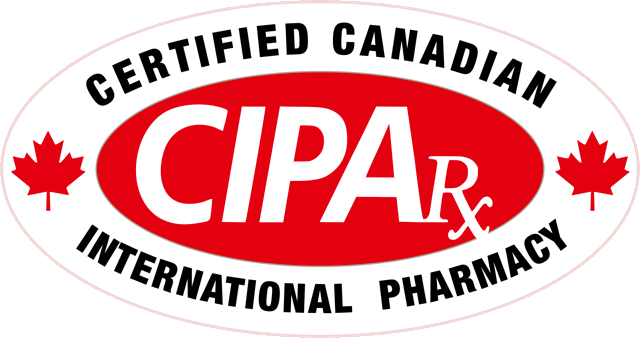Are you Looking to Buy Tarceva (Erlotinib) from PrescriptionPoint.
(Top Brand Option)
 Tarceva
Tarceva
 Prescription Required
Prescription Required | Drug Name | Dosage | Quantity | Price | Buy Now |
|---|---|---|---|---|
| Tarceva | 100mg | 30 | $2160.00 | Add To Cart |
(Affordable Generic Options)
 Erlotinib
Erlotinib
 Prescription Required
Prescription Required | Drug Name | Dosage | Quantity | Price | Buy Now |
|---|---|---|---|---|
| Erlotinib | 25mg | 30 | $910.00 | Add To Cart |
| Erlotinib | 100mg | 30 | $543.00 | Add To Cart |
| Erlotinib | 150mg | 30 | $830.00 | Add To Cart |
| Erlotinib | 150mg | 90 | $2474.00 | Add To Cart |
Tarceva (erlotinib)
Indications
- Non-Small Cell Lung Cancer (NSCLC): Tarceva is used for the treatment of locally advanced or metastatic non-small cell lung cancer (NSCLC) after failure of at least one prior chemotherapy regimen.
- Pancreatic Cancer: It is used with gemcitabine for the treatment of locally advanced, unresectable, or metastatic pancreatic cancer.
Ingredients
- Active Ingredients: Erlotinib
- Inactive Ingredients: Lactose monohydrate, microcrystalline cellulose, croscarmellose sodium, magnesium stearate, and other excipients as per formulation.
Dosage and Administration
- Take Tarceva exactly as prescribed by your healthcare provider, typically once daily on an empty stomach.
- Swallow the tablets whole with water; do not crush or chew them.
- Follow your healthcare provider’s instructions regarding dosage and duration of treatment.
- Do not take more than the prescribed dose as it can increase the risk of side effects.
- Avoid skipping doses or abruptly stopping the medication without consulting your healthcare provider.
- Do not take Tarceva with food as it can affect the absorption of the medication.
Mechanism of Action
Tarceva works by inhibiting the activity of epidermal growth factor receptor (EGFR) tyrosine kinase. EGFR is involved in the growth and spread of cancer cells. By blocking this receptor, Tarceva interferes with the signaling pathways that promote cancer cell growth, thus helping to slow down or stop the progression of cancer.
Contraindications
- If you are allergic to erlotinib or any other ingredients in Tarceva.
- If you have a severe liver disease or are undergoing treatment with drugs that may interact with Tarceva and cause serious side effects.
Side Effects
Common Side Effects
- Diarrhea
- Rash or acne
- Nausea
- Loss of appetite
- Fatigue
Serious Side Effects
- Severe skin reactions (blistering, peeling, or severe rash)
- Liver problems (yellowing of the skin or eyes, dark urine, severe abdominal pain)
- Severe lung problems (shortness of breath, persistent cough)
- Eye problems (eye pain, redness, vision changes)
Precautions
- Inform your healthcare provider if you have a history of liver disease or other health conditions that may affect your treatment.
- Notify your doctor if you are pregnant, planning to become pregnant, or breastfeeding.
- Regular monitoring of liver function is required during treatment with Tarceva.
- Avoid grapefruit and grapefruit juice as they can interact with Tarceva and affect its effectiveness.
- Be cautious about possible drug interactions with other medications you are taking.
Storage Instructions
- Store Tarceva tablets at room temperature, away from moisture and direct sunlight.
- Keep the medication in its original container, tightly closed.
- Keep out of reach of children.
- Do not store in the bathroom due to high humidity.
Why Choose Our Online Pharmacy for Tarceva?
Authenticity and Safety
Certified Authenticity: PrescriptionPoint is accredited by CIPA and IPABC, guaranteeing that every drug we offer is genuine and safe.
Prescription Requirement: We prioritize your well-being by requiring a valid prescription from a healthcare provider, ensuring that Tarceva is suitable for your condition.
Cost and Savings
Affordable Pricing: PrescriptionPoint provides some of the most competitive prices for Tarceva online, helping you reduce your drug expenses.
Generic Alternatives: Besides the brand-name Tarceva, we offer generic Erlotinib, which is just as effective and more budget friendly.
Customer Service
Our committed customer service team is always available to help with any questions or issues, ensuring a seamless purchasing experience.
Positive Reviews
PrescriptionPoint boasts a strong record of satisfied customers, as demonstrated by numerous positive reviews and testimonials.
How to Order Tarceva Online in Canada?
Online
You can easily buy Tarceva or its generic alternative Erlotinib on our website, www.prescriptionpoint.com.
Phone
For personalized assistance, you can place your order for Tarceva by speaking with one of our friendly customer support representatives. Just call us on +1-877-244-0431, and we will be happy to assist you.
Fax
If you prefer using fax, you can send your prescription and details to our secure fax line at +1-877-453-0921. We ensure quick and confidential processing of your order.
References
https://www.accessdata.fda.gov/drugsatfda_docs/label/2016/021743s025lbl.pdf
Additional information
Scientific Name: |
Erlotinib |
|---|---|
Formulation: |
Tablet |
Strength(s): |
25mg, 100mg, 150mg |
Quantities Available: |
30, 90 |
The information above is provided by third parties to Prescriptionpoint.com for Tarceva (Erlotinib). This information is for general purposes only and is not intended to replace a physician's advice. Always consult with your doctor or a qualified health care professional if you need advice on any medical concerns.

 Tarceva
Tarceva  Erlotinib
Erlotinib


